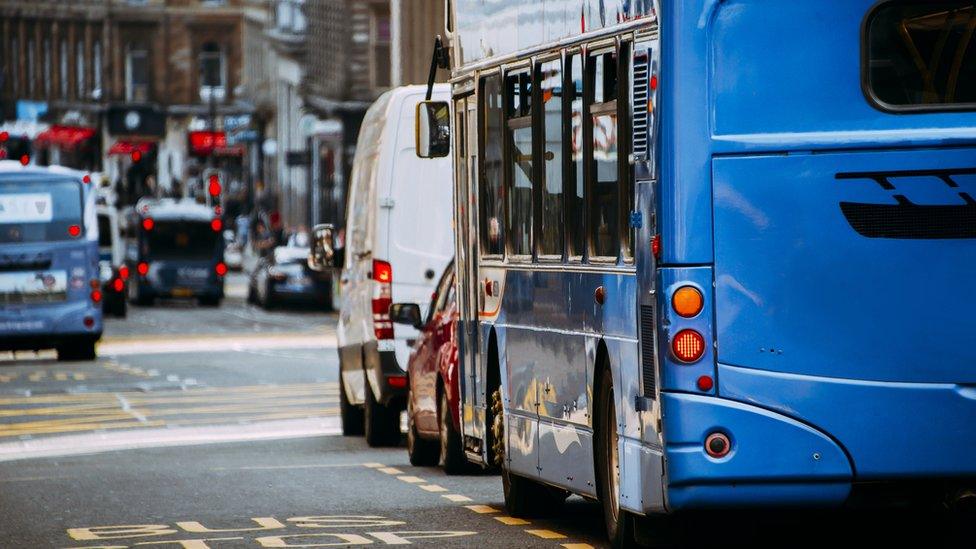Glasgow's Low Emission Zone: Firm could rack up £140,000 in fines
- Published

Julie Dunn says some of her company's delivery vehicles will not be compliant until July
A firm says it faces tens of thousands of pounds in penalties as it will not be ready in time to comply with Glasgow's Low Emission Zone (LEZ).
Dunns Food and Drinks said a delay in receiving new delivery vans meant some of its vehicles would not meet emission standards by the time the zone comes into effect, external on 1 June.
The wholesaler is asking Glasgow City Council for more time to comply.
The local authority said it had taken a phased approach to implementation.
The LEZ was first announced in 2017 as a way to improve air quality.
The zone covers large parts of the city centre, with fines ranging from £60 up to £480 per day for non-compliant cars and light goods vehicles, and up to £960 for buses and HGVs.
Dunns, which has 300 customers within the zone, said it had ordered several compliant diesel vehicles in November 2021 - but would not receive them until July due to supply chain delays.
Operations director Julie Dunn said: "We support any move to improve air quality in city centres, and the introduction of the LEZ is not something that has crept up on us or taken us by surprise.
"We have planned carefully and ordered compliant vehicles that under normal circumstances would have arrived well in time."
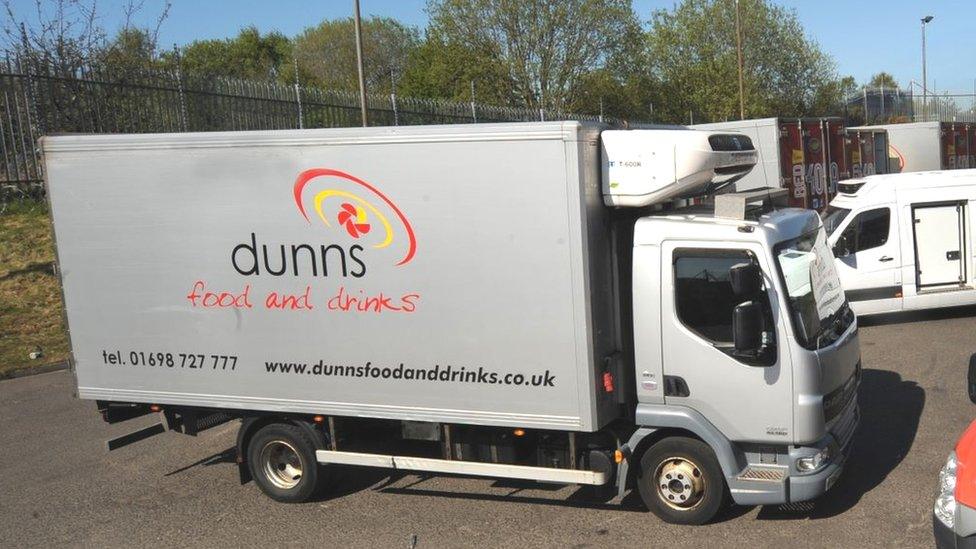
Dunns is upgrading its fleet to meet the new emission standards
But she said the world had changed massively in the years since the LEZ was announced.
Ms Dunn explained: "The knock-on effect of the Covid-19 pandemic, war in Ukraine, and the consequent global supply chain issues and domestic worker shortages could not have been predicted.
"To now face potentially tens of thousands of pounds in fines to carry out our day-to-day duties - which are vital to hundreds of businesses in Glasgow City Centre - due to global events outwith our control does not seem right.
"I am confident we are not the only wholesaler facing this situation, and I worry many other businesses could be affected too."
And in an interview with BBC Radio Scotland's Good Morning Scotland programme she added "If I have four trucks going into the city that are non-compliant five days a week for the seven or eight weeks that we will be operating before the new trucks arrive that would be around £140,000 of fines."
What is the low emission zone?
All vehicles entering the zone after 1 June will face a penalty charge if they do not meet emission standards.
It covers an area between the M8 to the north and west, the River Clyde to the south, and the Saltmarket/High Street to the east.
In general, petrol vehicles registered from 2006 onwards and diesel engine vehicles registered after September 2015 will meet the required standards.
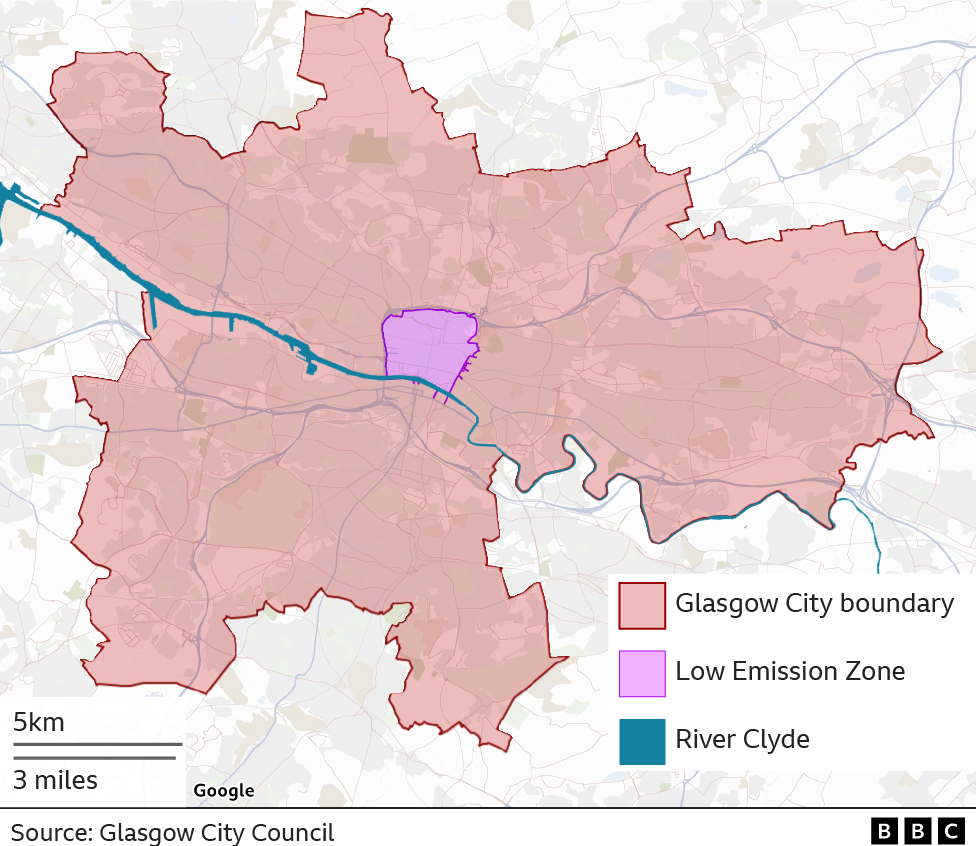
Transport Scotland has set up a website which allows people to check if their vehicle is compliant, external.
There will be some exemptions from the scheme, including blue badge holders, motorcycles, mopeds and emergency vehicles.
Residents living within the zone will not have to comply until June 2024, and some taxis in Glasgow have also been given extra time to comply.
Aberdeen, Dundee and Edinburgh are also introducing LEZs, but they will not be enforced until 2024.
Stopping deliveries
The Scottish Wholesale Association (SWA) is calling for a grace period for firms struggling to comply in time.
The trade body said it supported the low emission zone in principle but added that the "rapid introduction" would "make it very difficult for our members to operate their business efficiently".
SWA chief executive Colin Smith said: "Our members' businesses could be in jeopardy if they are unable to afford to upgrade their vehicles to LEZ compliant.
"This would mean members pulling out of delivering to Glasgow businesses, potentially reducing competition, and increasing costs to business, residents and tourists as those complying pass on the investment costs to customers in the form of higher prices."
What are the potential penalties?
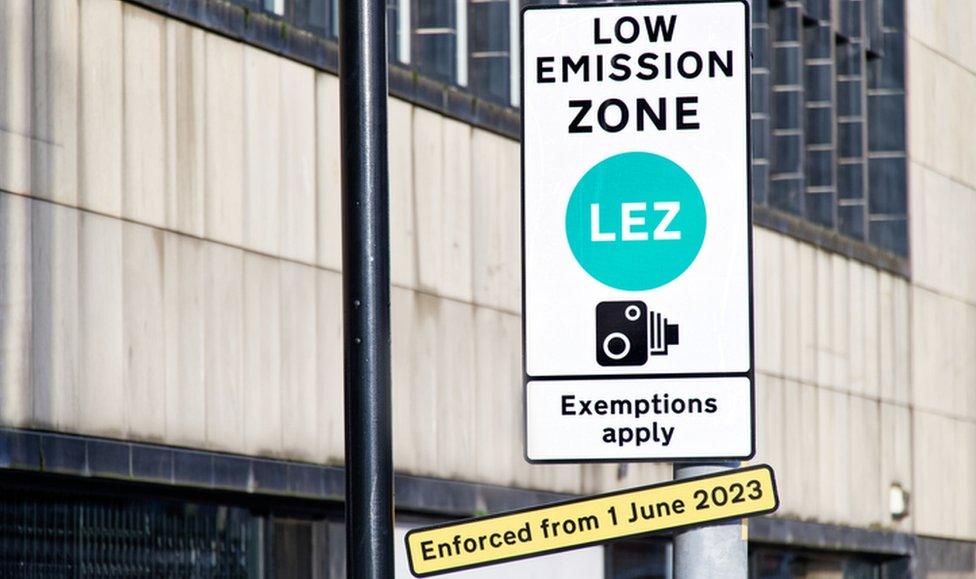
The owner of any non-compliant vehicle detected within the low emission zone will initially face a fine of £60.
The penalty charge will then double with each subsequent breach, rising to a maximum of £480 for cars and light goods vehicles and £960 for buses and HGVs.
Once that figure is reached, the maximum fine will be imposed for each day that the vehicle enters the zone.
The rate is reset to £60 if there are no breaches for 90 days.
The council says the size of the fine will only start to increase after the vehicle's registered keeper can expect to have received the first penalty charge notice.
All penalties will be reduced by 50% if paid within 14 days.
Number plate recognition
Glasgow City Council put LEZ signs and road markings in place at the end of last year, covering all zone entry points.
Automatic number plate recognition cameras are set to be installed later this month.
A spokeswoman for the city council said: "The Low Emission Zone is an essential measure if Glasgow is to tackle the harmful air pollution that has dogged parts of the city centre for decades.
"Poor air quality presents a serious risk to public health, especially for the most vulnerable, and the LEZ is an essential measure to help bring down pollution levels to a more acceptable level and make our city centre a safer and more attractive place to live, work and visit.
"To give businesses as well as individuals time to prepare, since the LEZ was first announced in 2017, we have taken a phased approach to implementation and there has been an extensive programme of engagement with all those likely to be affected."
- Published22 September 2022
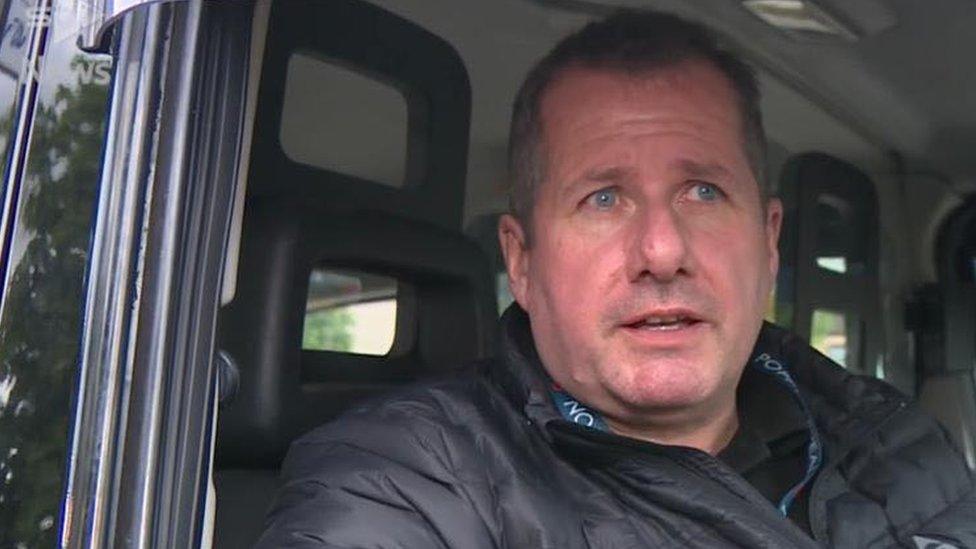
- Published31 December 2018
